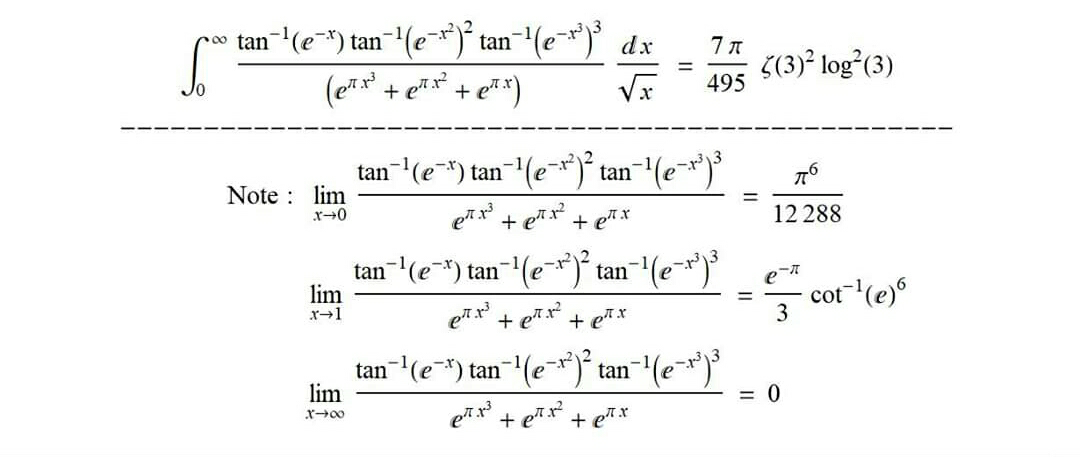
IntegrationQuestion and Answers: Page 217
Question Number 72665 Answers: 1 Comments: 5
Question Number 72641 Answers: 0 Comments: 2

Question Number 72494 Answers: 1 Comments: 1
Question Number 72466 Answers: 1 Comments: 2
Question Number 72445 Answers: 0 Comments: 0
$$\int\frac{{x}\:{cos}\left({ax}\right)}{\mathrm{1}+{x}^{\mathrm{2}} }\:{dx} \\ $$
Question Number 72401 Answers: 1 Comments: 0
Question Number 72397 Answers: 0 Comments: 4
Question Number 72396 Answers: 0 Comments: 2
Question Number 72392 Answers: 0 Comments: 1
Question Number 72391 Answers: 0 Comments: 1
Question Number 72346 Answers: 0 Comments: 1

Question Number 72337 Answers: 1 Comments: 1
Question Number 72336 Answers: 0 Comments: 0
Question Number 72359 Answers: 1 Comments: 2

Question Number 72259 Answers: 1 Comments: 0
$$\int{yz}\:{dx}\:+\int{xz}\:{dy}\:+\int{xy}\:{dz}\:\:\:\:{pleas}\:{sir}\:{help}\:{me}\:? \\ $$
Question Number 72286 Answers: 0 Comments: 0

Question Number 72287 Answers: 0 Comments: 0

Question Number 72390 Answers: 0 Comments: 1
Question Number 72060 Answers: 0 Comments: 2
$$\int\frac{\mathrm{sin}\:{x}}{\mathrm{1}+\mathrm{sin}\:{x}+\mathrm{sin}\:\mathrm{2}{x}}{dx}=? \\ $$
Question Number 72025 Answers: 1 Comments: 1
Question Number 72017 Answers: 0 Comments: 0
Question Number 72016 Answers: 1 Comments: 2
Question Number 72015 Answers: 0 Comments: 1
Question Number 72012 Answers: 0 Comments: 1
Question Number 72011 Answers: 1 Comments: 1
Question Number 71921 Answers: 0 Comments: 0

Pg 212 Pg 213 Pg 214 Pg 215 Pg 216 Pg 217 Pg 218 Pg 219 Pg 220 Pg 221
